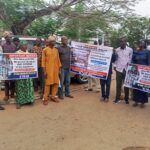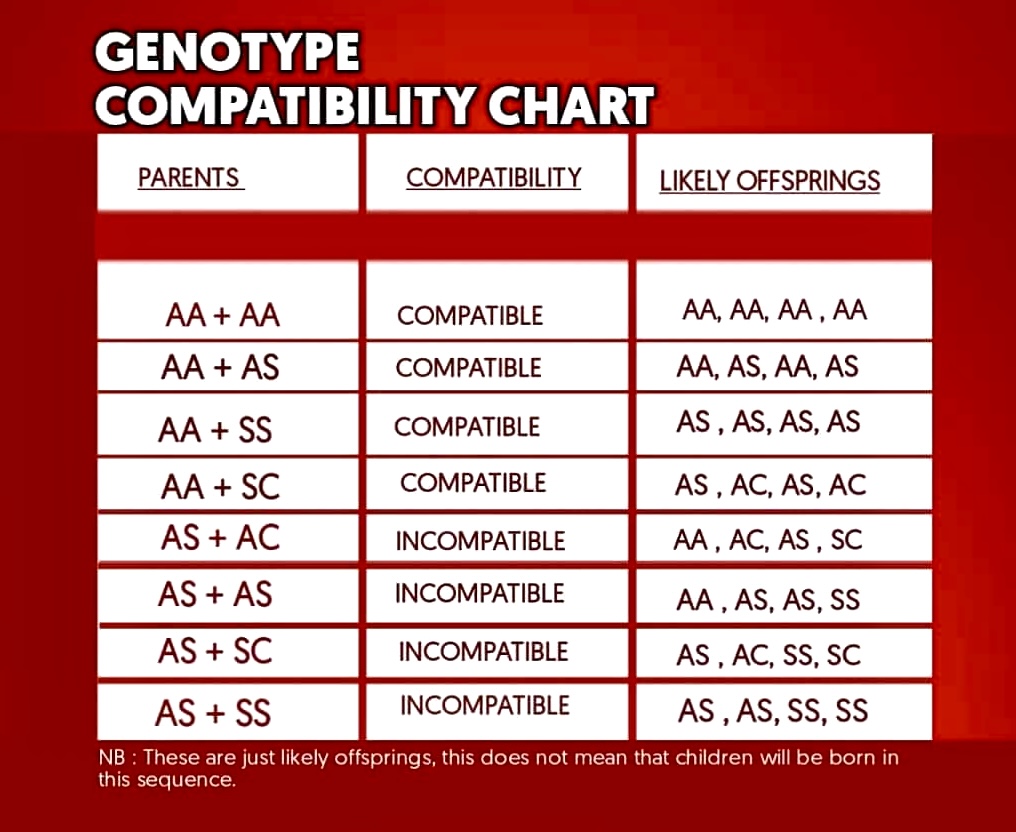By Uche Bibilari, News Agency of Nigeria (NAN)
Sickle Cell Disease (SCD) is a genetic blood disorder that arises when both parents carry the sickle cell gene, creating a 25 per cent chance of transmitting the disease to their offspring with each pregnancy.
Globally, an estimated 400,000 babies are born annually with SCD.
Medical experts have consistently warned that genotype incompatibility remains the leading cause of new cases and should be a central consideration among intending couples.
According to them, avoiding unions between carriers, especially those with AS and SS genotypes could greatly reduce new incidences, limiting them to carriers alone.
In high-income countries, the average life expectancy for individuals living with SCD is approximately 57 years.
According to data from the U.S. Centres for Disease Control and Prevention, the situation is far more critical in Sub-Saharan Africa, where between 50 and 80 per cent of children born with Sickle Cell Disease die before their fifth birthday.
In contrast, babies born with SCD in the United States have a 95 per cent chance of reaching adulthood.
Given these disparities, experts are unanimous that prevention is the most effective and affordable strategy for eliminating the disease.
Prof. Titus Ibekwe, Provost of the College of Health Sciences, University of Abuja, underscored this view during a recent public lecture in Abuja.
It was titled “The Evolving Therapeutic Landscape in Sickle Cell Disease”.
He emphasised the importance of proactive partner selection based on genotype compatibility.
“Prevention is key in the fight against sickle cell, and this costs nothing.
“It simply means paying close attention when choosing a life partner ensuring that individuals with the AS genotype do not marry another AS.
It is also that an AS does not marry an SS, or two SS individuals do not marry”.
Ibekwe explained that such unions greatly increase the risk of having children with SCD, and that sustained adherence to genotype-based partner selection could drastically reduce, if not eliminate, the disease burden.
Beyond prevention, Ibekwe noted that treatment options for individuals living with the disease have expanded, including advanced therapies such as bone marrow transplantation and gene therapy.
He explained that gene therapy aims to correct the faulty gene responsible for the disease, allowing it to function like a healthy one.
Also speaking on the burden of SCD in Nigeria is Dr Maureen Achebe, a Clinical Director of Haematology at Harvard’s Brigham and Women’s Hospital and Associate Professor of Medicine at Harvard Medical School.
She disclosed that Nigeria bears the highest global burden of the disease.
“Every year, 300,000 babies are born with SCD in Sub-Saharan Africa, and 150,000 of them are born in Nigeria alone,” she said.
Achebe outlined this as a major public health concern and warned that, with Nigeria’s high fertility rate, the number is expected to rise greatly by 2030.
She advocated for newborn screening to detect SCD before symptoms begin, noting that babies appear normal at birth but benefit greatly from early diagnosis and care.
“Without early identification and intervention, infants will continue to die of undiagnosed anaemia, pneumococcal sepsis, or severe malaria,” she said.
Achebe noted that the sickle cell trait historically evolved as a natural protection against malaria.
According to her, individuals who carry one sickle cell gene (AS genotype) are less likely to die from severe malaria compared to those without the gene (AA genotype).
“However, those with full-blown SCD suffer from chronic complications, reduced quality of life, poor educational and professional outcomes, and premature mortality,” she said.
Additionally, she emphasised the importance of preventive strategies, urging the use of vaccinations, daily folic acid supplements, and proactive infection control.
She also recommended hydroxyurea as a proven daily treatment that improves survival rates and reduces the severity of symptoms.
While she recognised the promise of gene therapy and bone marrow transplantation, she pointed out their high costs, limited accessibility, and the fact that children under 12 tend to respond better to these treatments.
Achebe clarified that while gene therapy treats the symptoms and effects of the disease, it does not eliminate the sickle cell gene from the patient’s reproductive cells, meaning affected individuals can still pass it to their children.
She warned that the total economic toll of SCD in Sub-Saharan Africa currently stands at over $9.1 billion annually, projected to rise to $10 billion by 2030.
“Tackling SCD requires strong financial and political will to scale up newborn screening and ensure nationwide access to care,” she said.
Achebe further stressed the need for public awareness, early diagnosis, and cultural education to dispel myths surrounding the disease.
“Sickle Cell disease is a scientifically inherited condition, not caused by witchcraft,” she affirmed.
In the same vein, Prof. Obiageli Nnodu, Director of the Centre of Excellence for Sickle Cell Disease Research and Training (CESRTA), University of Abuja, highlighted the importance of continued research and capacity building.
She explained that CESRTA, established in 2015, has made major progress in clinical and translational research to bridge treatment gaps in Nigeria and beyond.
“Our centre provides platforms for skills development and engages in strategic collaborations with local and international institutions to improve care outcomes,” she said.
Following the 5th Global Congress on Sickle Cell Disease, the centre was upgraded to the National Centre of Excellence for SCD Research.
This is a major milestone in Nigeria’s efforts to combat the disease.
As the world marks World Sickle Cell Day on June 19, experts are calling for a renewed push toward genotype awareness, partner compatibility, and universal newborn screening as critical tools in the fight to eliminate SCD. (NANFeatures)












